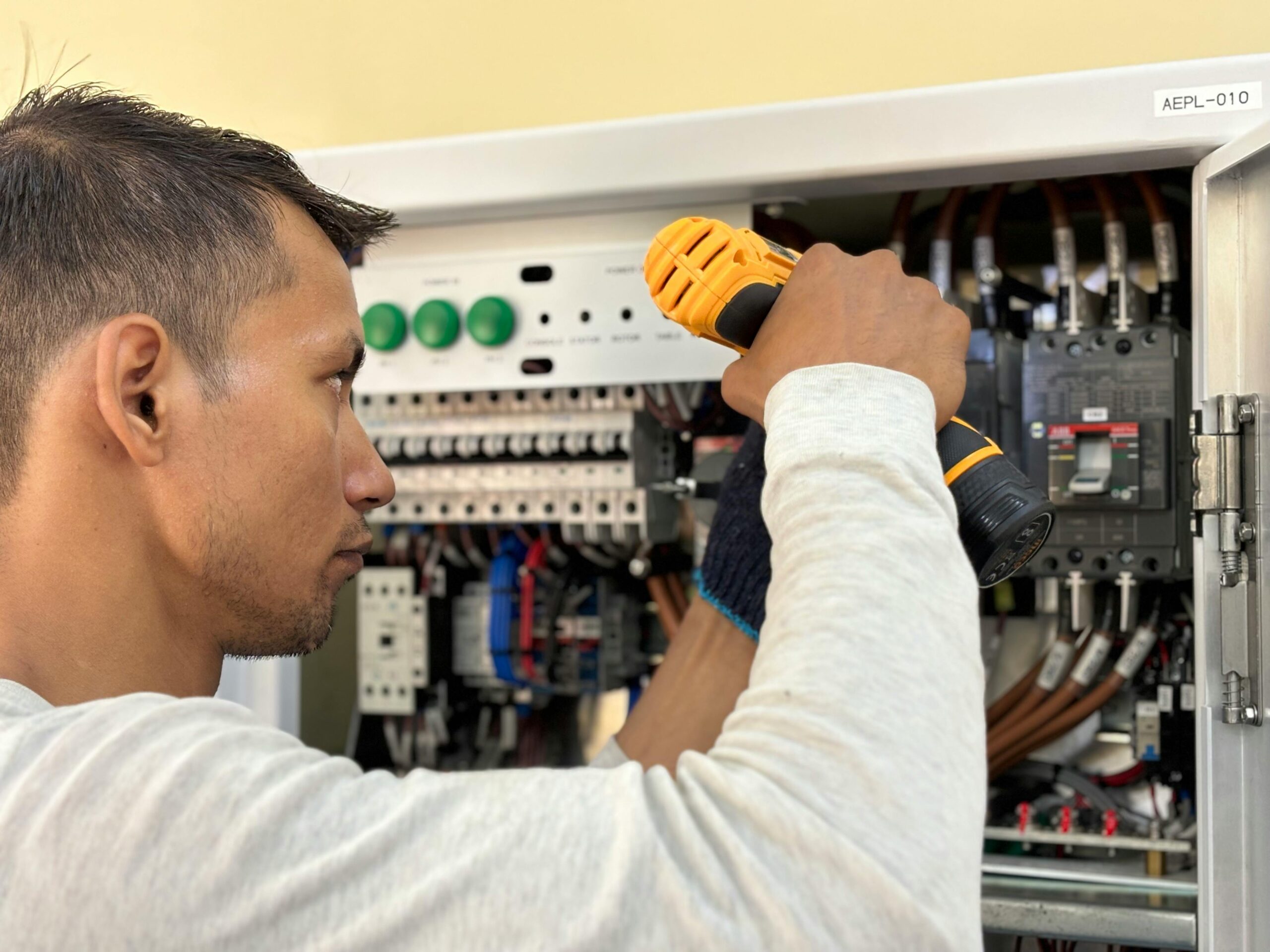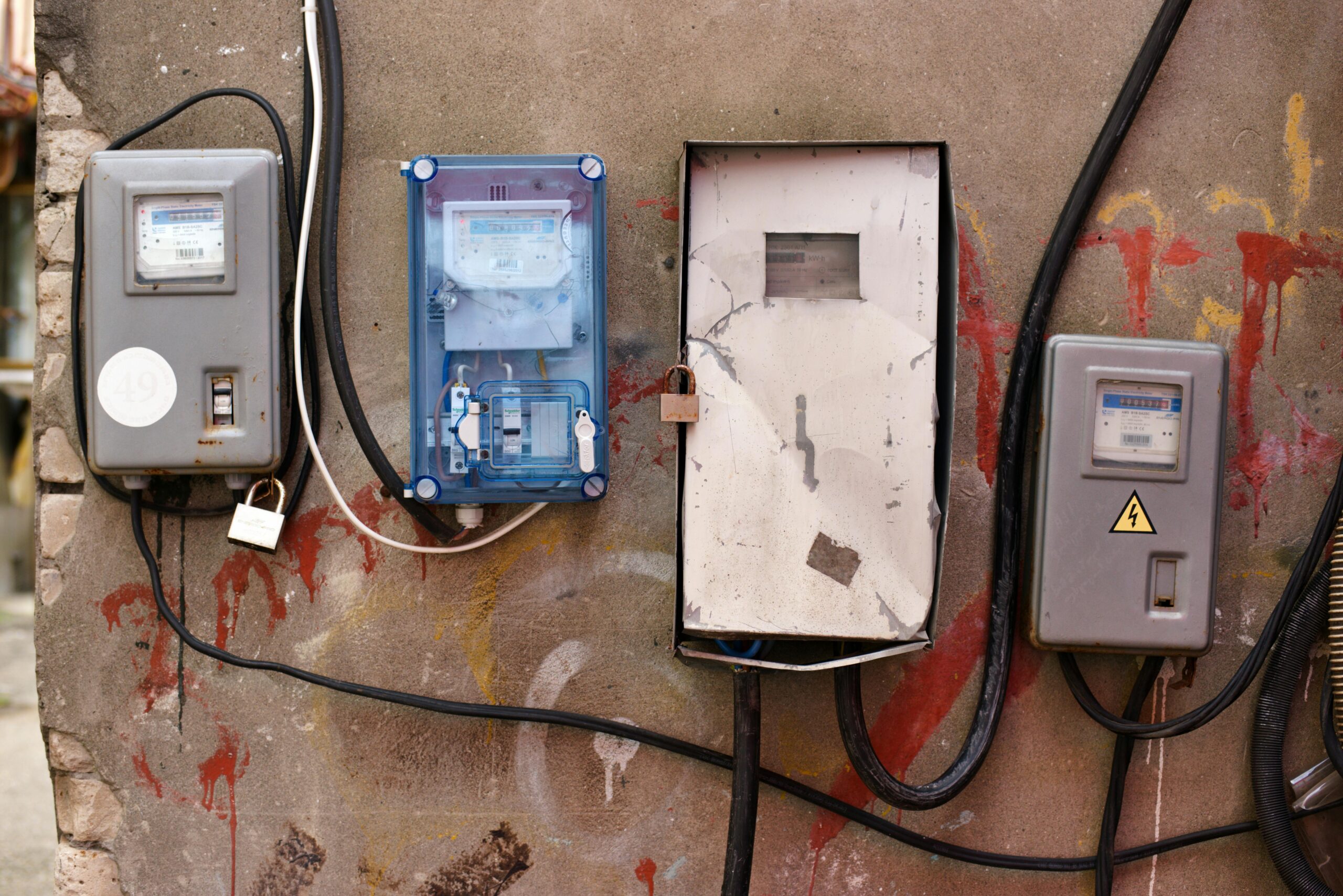As a homeowner, consider upgrading your electrical panel to fit your energy needs better. However, before you proceed with this project, it’s important to understand what an electrical panel is and why it’s essential to your home’s functionality. An electrical panel, also known as a circuit breaker panel or distribution board, is responsible for distributing electricity throughout your home.
Upgrading your electrical panel can improve the safety and efficiency of your electrical system. But do you need a permit to upgrade your electrical panel? In this blog post, we will explain the importance of electrical panel upgrades, the function of the permits, and whether or not you need a permit to upgrade your electrical panel.
When is a permit required for electrical panel upgrade?
If you plan on upgrading your electrical panel, knowing when a permit is required is essential. The jurisdiction of permit requirements varies from city to city, so it’s best to check with your local authorities to determine whether or not you need one. The size and type of upgrade you plan on making can also impact whether or not a permit is necessary.
For example, if your main panel is the primary source of disconnect for your home, then you will have to obtain a disconnect order from your power utility. The main source of disconnect means that this is the first method after your electric meter with which to shut off all power to your whole home. In most municipalities, the utility will require a permit and inspection in order for them to reconnect power.
Benefits of obtaining a permit
Obtaining a permit to perform electrical work has several benefits, including:
- Safety of Electrical Systems: By obtaining a permit, a professional will inspect the electrical work to ensure it meets safety standards. It ensures that the electrical system is installed correctly and operates safely, which can prevent dangerous accidents and fires.
- Meeting Local Building Codes and Regulations: Local building codes and regulations often require permits for electrical work. If these codes and regulations are not followed, violations can result in hefty fines, delays, or even the removal of the electrical system.
- Avoiding Legal and Financial Penalties: Not obtaining a permit for electrical work can lead to legal issues and financial penalties. If authorities, fines, and legal issues discover unpermitted work, your reputation and financial status can be affected.
- Increase in Property Value: Obtaining permits and complying with local building codes and regulations can increase the value of your property. It shows that you have taken the necessary steps to ensure your electrical system is installed correctly and operates safely. It is an attractive feature to potential buyers or renters.
How to obtain a permit for electrical panel upgrade
Understanding your local regulations is the first step to obtaining a permit for electrical panel upgrade. Make sure you research which documentation you must submit with your application to ensure a smooth application process. It may include proof of ownership, a valid driver’s license or government-issued ID, and other proof of identification to demonstrate that you are authorized to make the request.
Once all required paperwork has been gathered, submitting your application is usually straightforward. Still, it’s essential to ensure that everything has been correctly completed before submission so that approval can be quick and efficient. Then, upon inspection and approval by an authorized representative, the necessary permits will be granted accordingly.
In addition, A qualified and properly licensed electrical company will typically pull the permit for you. This will allow you to avoid all the unnecessary paperwork and headache. Let the professionals handle it!
Cost of obtaining a permit
When it comes to obtaining a permit for an electrical panel upgrade, there are a few factors that will influence the overall cost. First, the cost of the permit will vary depending on the jurisdiction where the work is taking place. Different cities and states charge different amounts for permit fees.
In addition, the size and scope of the project will also play a role in determining the cost of the permit. Generally speaking, the larger the project, the higher the cost of the permit. If you’re planning to upgrade your electrical panel, it’s important to budget accordingly for the cost of the permit.
Common mistakes to avoid when obtaining a permit
When obtaining a permit for electrical work, it is essential to avoid common mistakes to ensure a smooth and successful process. These mistakes include:
- Failure to Obtain a Permit: The most common mistake when obtaining a permit is not getting one. Without a permit, electrical work is illegal and may result in serious consequences, including safety risks, legal action, and costly repairs.
- Applying for the Wrong Permit: It’s essential to apply for the correct permit for the type of electrical work being done. Applying for the right permit can ensure the start of the project and may result in a rejected application.
- Not Hiring a Licensed Electrician: Electrical work should always be done by a licensed electrician. Hiring an unlicensed electrician or attempting to do the work yourself can lead to safety concerns, inspection failures, delays, and legal penalties.
- Not Following Inspection Guidelines: Failing to comply with inspection guidelines can result in failed inspections, which can delay the project and incur additional fees. Therefore, it is vital to follow inspection guidelines to ensure electrical work is safe and up to code.
Potential consequences of not obtaining a permit
Regarding electrical panel upgrades, obtaining a permit may seem like a hassle. However, the consequences of not obtaining one can be much worse. Safety hazards are a major concern, as faulty electrical systems cause fires or electrocution. In addition to putting yourself and others at risk, not obtaining a permit can lead to legal and financial penalties.
It may also make it difficult to sell your property in the future, as potential buyers may be wary of investing in a property with questionable electrical systems. Lastly, not obtaining a permit could void insurance coverage, leaving you financially vulnerable in the event of an accident.
How long does it take to obtain a permit?
The waiting period for permit approval can vary depending on several factors. One of the most significant factors that can affect the processing time for a permit is the workload of the building department responsible for handling the permit.
Other factors that can impact the timeline for permit approval include the complexity of the project, any necessary inspections or re-inspections, and any outstanding fees or fines that need to be addressed. However, it’s important to note that some building departments may offer expedited permit processing options for an additional fee.
What to expect during electrical panel upgrade
Electrical panel upgrades are essential procedures that require the expert hands of a licensed electrician. This upgrade entails several steps, including assessing your home’s electrical load, selecting an appropriate panel, and rewiring electrical circuits. Depending on your electrical panel’s complexity, the completion timeframe can vary from a single day to several days.
Upon completion, an inspection is conducted to verify that everything works correctly and safely.
Cost of electrical panel upgrade
Regarding upgrading your electrical panel, the cost is likely a top concern. However, the price can vary greatly depending on where you are located. Comparing electrical panel upgrade costs across various regions can reveal significant differences. Therefore, it’s essential to take the time to research and budget for these costs properly. Electrical panel upgrades are crucial for ensuring your home can safely handle your energy needs.
Signs that indicate the need for an electrical panel upgrade
Electrical panels are the heart of your home’s electrical systems, which distribute power to all parts of your home. There are several signs that indicate when it may be time for an electrical panel upgrade, including:
- Frequent Tripping of Circuit Breakers: If a circuit breaker is tripping frequently, it can be a sign that it is overloaded and the circuit panel cannot handle the electrical load demands of your home.
- Flickering Lights: If your lights flicker when certain appliances are turned on, especially those that require high levels of electricity, it may be time to upgrade your electrical panel.
- Burning Smell: If you smell a burning odor from your electrical panel, it’s essential to take immediate action, as this can indicate that the panel is overheated, old, or malfunctioning.
- Outdated Electrical Panel: If your electrical panel needs to be updated, it may not be able to keep up with the electrical demands of today’s technology. Old panels may also lack modern safety features, such as circuit breakers that cut off power when there is an issue.
Different types of electrical panels
Regarding wiring, there are four distinct types of electrical panels. Each one offers unique features and capabilities for keeping your circuits running smoothly.
- Split-Bus Electrical Panel: A split-bus electrical panel has multiple circuit breakers and splits the incoming power into two sections. When the larger circuit breakers are shut off, they disconnect the entire panel so that the smaller circuits can stay active, ensuring a constant flow of electricity.
- Fuse Box: Fuse boxes are older electrical panels that use fuses instead of circuit breakers. The fuse is designed to melt if an overload breaks the connection and prevents fire.
- Main Circuit Breaker Panel: The main circuit breaker panel is another type of electrical panel. It contains a main circuit breaker – the switch that turns off power to the whole building. The panel is designed to receive power and then distribute it to individual circuits throughout the home.
- Sub-panel: A sub-panel is a panel that receives its power directly from the main electrical panel. It is typically mounted near a specific area where much power is needed, such as a workshop or laundry room. It contains circuit breakers to manage the electricity that passes through it.
Advantages of upgrading to a modern electrical panel
Upgrading to a modern electrical panel is a smart investment with numerous advantages. One of the most significant benefits is increased electrical capacity, which allows for new appliances and electronics to be added without overloading the system. Modern panels also offer greater electrical efficiency, reducing energy bills and helping the environment. In addition, enhanced safety features, like arc fault circuit interrupters and ground fault circuit interrupters, protect against electrical hazards.
Additionally, a modern panel ensures better performance and longevity, as older panels may struggle to meet today’s electrical demands.
Do-it-yourself electrical panel upgrades
Upgrading your electrical panel may be the answer for homeowners looking for a low-cost solution to their electricity needs, but it comes with its own pros and cons. On the bright side, you can save considerable money you would otherwise have to pay an electrician. However, it’s essential to remember that this isn’t a decision to take lightly, as electrical work can be dangerous, and not everyone is equipped to do it.
Safety should always be your topmost priority, and any mistakes during the installation can lead to severe repercussions. Additionally, it’s crucial to ensure that your DIY electrical upgrade is in line with your local municipality’s legal and regulatory requirements. Failure to comply with these regulations could lead to severe legal and financial consequences.
Hiring a licensed electrician
Regarding electrical work, it’s always better to be safe than sorry. That’s why it’s important to hire a licensed electrician for any electrical jobs you may need to be done. A licensed electrician has passed rigorous training and certification requirements to ensure they have the knowledge and skillset to complete the job safely and effectively. Not only do they have the necessary training and experience, but they are also required to adhere to strict safety codes and regulations to ensure the safety of everyone involved.
Questions to ask your electrician
It’s important to ask the right questions to get a qualified and reliable professional. One of the first questions you should ask is about licensing and insurance. Your electrician must be licensed and insured to protect you from potential liability. Additionally, finding out about their experience and qualifications can help you determine their level of expertise and competence.
When it comes to cost and time estimates, be sure to clearly understand what the job will entail and how much it will cost, as well as any potential delays or unforeseen issues. Finally, ask about their warranty and customer service policies to ensure you get the best possible service and protection for your investment.
Conclusion
The decision as to whether or not you need a permit to upgrade your electrical panel is situational and likely determined by local laws and ordinances. With that said, it’s always best to choose a reputable firm like Smith & Jones Electric, which has years of experience on any electrical services and is familiar with local ordinances and laws that protect homeowners.
If your home requires an electrical panel upgrade, don’t hesitate to contact the professionals at Smith & Jones Electric today. They will ensure your safety and quickly get the project on track!
We help companies refine their messaging, hone in their sales process, and grow their pipeline – all with a new website.




